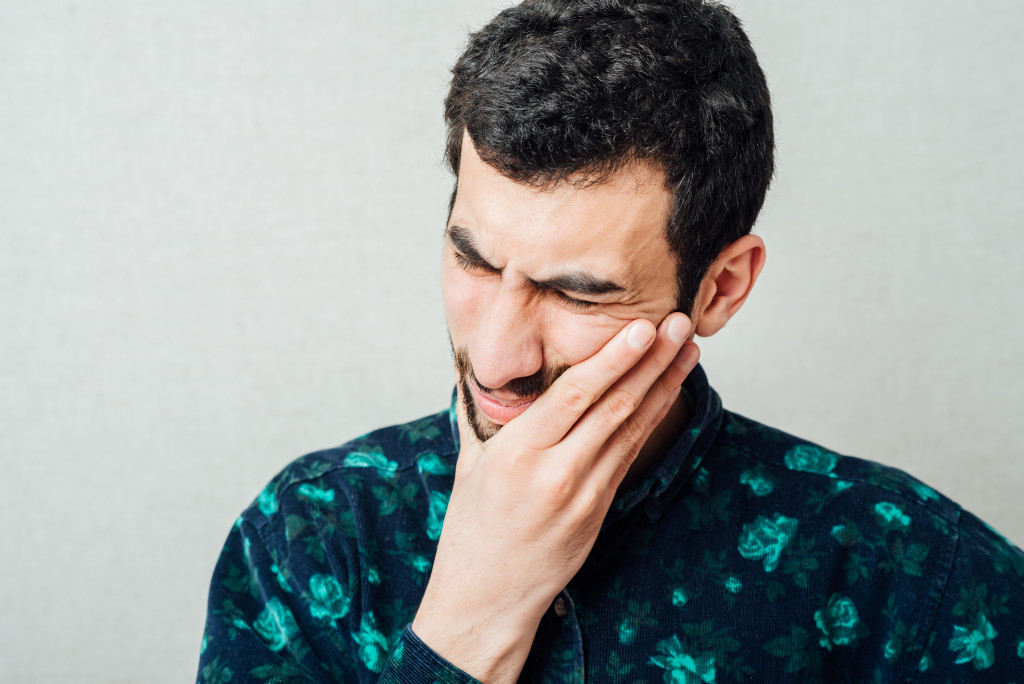Are you having difficulty chewing your food? Do you find yourself struggling to eat even the most basic foods? You may have experienced this before and brushed it off as something minor. Still, if it’s becoming a recurring issue, there could be an underlying problem.
It’s important to understand what could be causing your difficulty chewing before you can get the right treatment and start eating again without pain or discomfort. After all, who wants to miss out on all the delicious food?
If you’re one of the many people having trouble chewing, the cause could be related to your teeth, jaw, mouth, or other medical conditions.
Dental Issues
One of the most common causes of difficulty chewing is dental problems such as cavities, gum disease, tooth decay, or broken teeth. Poor dental hygiene can lead to all these issues, making it difficult to chew comfortably and efficiently. This is because the sharp edges of the teeth can cause discomfort and pain when chewing. In addition, cavities and tooth decay can lead to infection and inflammation. So when you try to chew, even the slightest pressure can cause extreme pain.
TMJ Dysfunction
Temporomandibular joint (TMJ) dysfunction is another possible cause of difficulty with chewing. TMJ dysfunction occurs when the joint that connects your jawbone to your skull becomes strained or misaligned due to injury, stress, or a previous medical condition. Symptoms include clicking sounds when you open your mouth wide, pain near the ear area when you move your jaw, and difficulty chewing.
A TMJ dysfunction makes it hard for you to chew or even open your mouth wide because the joint is strained and misaligned. You may also experience headaches or jaw pain when you try to eat, which may result in a lack of appetite.
Old Age
As you get older, your teeth may become more brittle and weak. This can make it difficult for you to chew food properly due to the reduced strength of your gums and jaw. In addition, old age can cause tooth decay or gum disease, further complicating the issue. Especially if seniors don’t wear dentures, the strain they put on while eating can cause discomfort and pain.
Arthritis
Arthritis is another medical condition that can make it hard to chew. Arthritis usually affects the joints and can cause your jaw joint to become stiff and painful, making it increasingly difficult for you to move your mouth or chew your food. The symptoms of arthritis include stiffness, swelling, and pain in the jaw joint, which makes chewing difficult. You may also notice that your jaw moves in a limited range of motion.
What You Need to Do
If you’re having difficulty chewing, you must visit your doctor or dentist for an evaluation. Depending on your condition, they may recommend the following:
The use of dentures—Dentures as a teeth replacement option can make it easier for you to chew and speak. These are recommended for seniors or people with extensive tooth decay. Dentures are made of resin or acrylic and fit over your existing teeth, allowing you to bite and chew without discomfort.
Jaw surgery—An option, especially for people with TMJ dysfunction. During surgery, your doctor may realign the jaw joint and reshape the bones to improve your range of motion. Surgery is also used to treat severe arthritis and other medical conditions.
Physical therapy—Your doctor may also recommend physical therapy to improve your chewing ability. Physical therapy can help reduce muscle tension in the jaw joint, allowing you to move your mouth freely and chew more comfortably. This is done by doing exercises such as jaw stretches and massages. The therapist may also use ultrasound or electrical stimulation to reduce pain and inflammation in the jaw.
Dietary adjustments—Making dietary changes may help reduce your difficulty with chewing. Eating softer foods, such as mashed potatoes and broth-based soups, can make it easier for you to chew without putting too much strain on your jaw joint. You should also cut up your food into smaller pieces to make it easier to chew. You may also need to avoid foods that require a lot of chewing, such as steak or hard candy.
Good oral hygiene—Make sure to maintain good oral hygiene by brushing and flossing regularly. This will help prevent cavities and tooth decay, reducing your difficulty with chewing. This includes the basics, such as brushing two times a day, avoiding sugary foods, and visiting your dentist for regular checkups.
No matter what is causing your difficulty chewing, getting the help you need is important. Visit your doctor and dentist to find out what’s going on and get the treatment you need to start eating again without pain or discomfort. In time, you’ll be able to enjoy all your favorite foods again.

